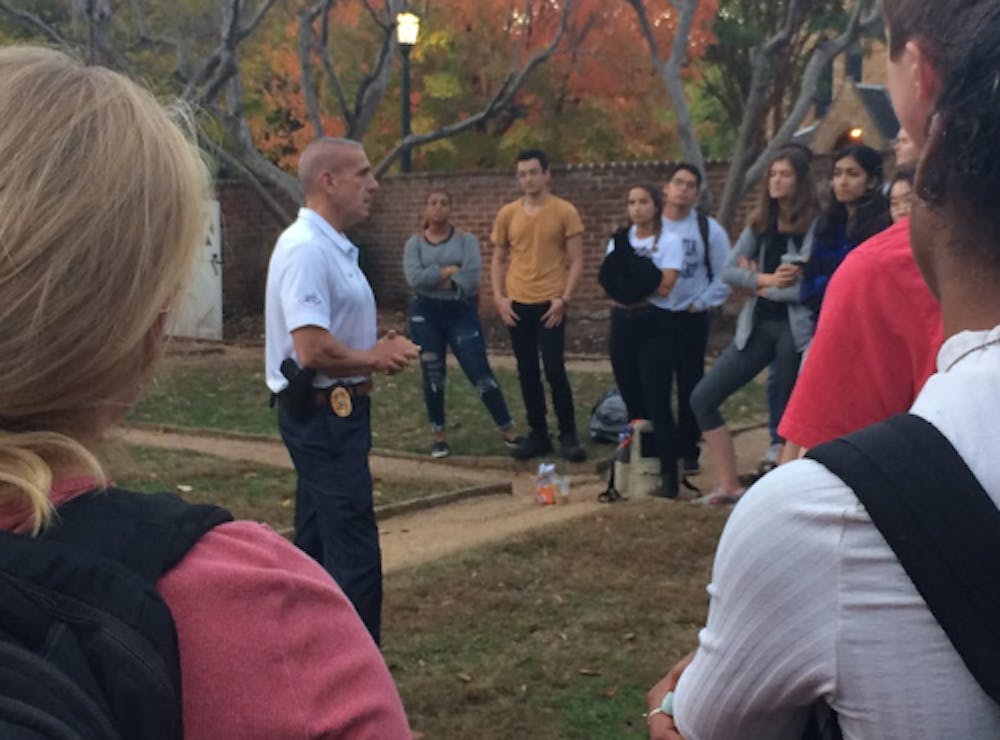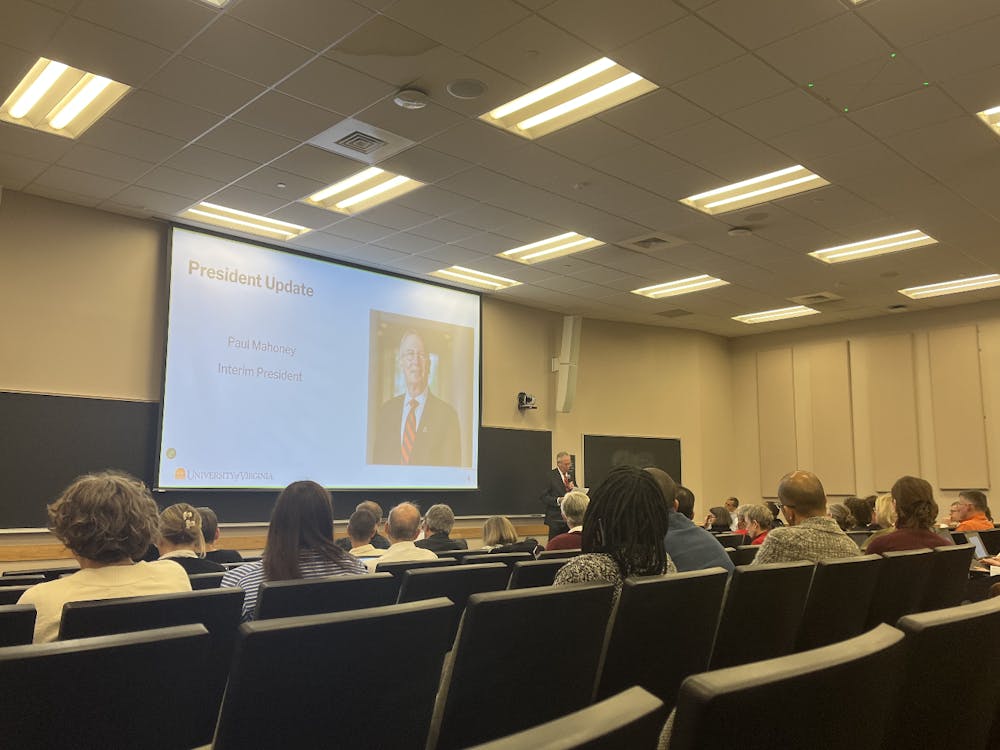Tim Longo, interim chief of University Police, spoke to the University Judiciary Committee during its meeting Sunday, emphasizing his focus on building relationships between the University Police Department and the University community at large. Longo also mentioned his new appointment as interim associate vice president for safety and security, as he’ll be filling in for Gloria Graham once her resignation goes into effect Nov. 1.
Longo told The Cavalier Daily he looks forward to taking on both interim positions.
“I am excited to have been afforded the opportunity to serve in these important roles, and remain humbled that I have been entrusted with these duties,” Longo said.
At the start of the UJC meeting, Longo introduced himself and discussed his view of his interim position as Chief of the UPD.
“I’ve been asked a lot of questions about what to change,” Longo said. “I think it’s insulting to Chief Sutton and the men and women who work here for me to come in and think things need to be changed. I believe in looking, learning, listening and then leading.”
Longo said he would be relying on feedback from the University community as he steps into the role, including reporting of any suspicious instances and general voicing of community perspectives on the UPD.
“I’m going to do a lot of looking, learning and listening,” Longo said. “Not just to people who wear uniforms … but to people like you as well, who call this place not just school but home.”
Longo quickly opened up the meeting to questions from UJC members, promising to explain the barriers preventing him from answering any questions.
Early on, the conversation turned to the problem of disparate levels of trust in police within the student body. Longo tied his answer back into his legal experience, as a graduate of the University of Baltimore’s School of Law.
“I worked in federal civil rights claims for plaintiffs and defendants,” Longo said. “The cops would say, you know, it's a really tough time to be a cop in America ... and I would challenge that ...There's never been a greater opportunity to work hard to regain that trust, to sit down with people and think about policing strategies that don't work.”
Addressing the question of trust in the police, another student asked how the UJC could help publicize the efforts the UPD is making to be more transparent. Longo pointed to encouraging people to attend the UPD’s outdoor roll calls, including one that will occur this week in front of O’Hill. During these events initiated by Chief Sutton UPD officers do their roll call — a briefing before they begin policing Grounds — and grab coffee afterwards with the community members who attended the event.
“After we're done, [we] take the opportunity to meet with people who have gathered to watch so that they get to know us so there's a face with a name when they see us on the street or the campus,” Longo said.
Longo also had warnings for students, including advice to not become too complacent in the Honor Code.
“We leave the computer on the table in the library, and we go to the restroom,” Longo said. “You're assuming the person that steals it goes here. You're assuming that the person who steals the computer believes in the Honor Code.”
Longo also warned students to be safe while walking around Grounds, especially in circumstances when students are more vulnerable, such as when drinking.
“There's a degree of vulnerability that you need to be aware of particularly when you've been drinking,” Longo said. “So I want you to know that and understand that and to not hesitate to call. If you don't feel comfortable and SafeRide’s not available, then call us.”
Throughout the meeting, many questions also came up about the logistics of local law enforcement. Longo elaborated on the differences and similarities between his time as Chief of the Charlottesville Police Department and his time as interim chief of the UPD.
Longo mentioned the difference in the governing bodies to which the individual departments report — the City Council versus the Board of Visitors, for example — and the size of the areas they police — the University is significantly smaller than the City. He also mentioned the similarity of population size, as the City and University have about the same number of people during the day, as well as a similar number of officers.
There was also discussion of the limited jurisdiction of the UPD — officially encompassing University property, but also including patrolling jurisdiction in the City of Charlottesville via an agreement with the City. Longo also touched on the connections between Ambassadors and the UPD and how it is decided which police department will respond when people within the area of the University, the City or the County call 911.
“When you call that 911 operator you give a location, or your location shows up based on your cellular device,” Longo said. “There's a system called CAD — Computer Aided Dispatch — and they put that location into that system … The system will tell the call taker what jurisdiction to dispatch that call to.”
At the end of the event, Chair Shannon Cason commented on how committed Longo is to student communication and UPD transparency.
“I think he's trying to do a really good job of keeping open lines of communication with the students and with organizations in general,” Cason said. “So, if any students want to specifically reach out to him or bring him to an organization that they have, I’m sure that he'd be more than welcome to do that. He's really trying to build community relationships between all of us.”







